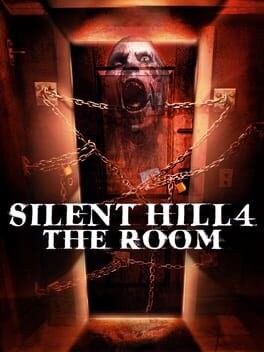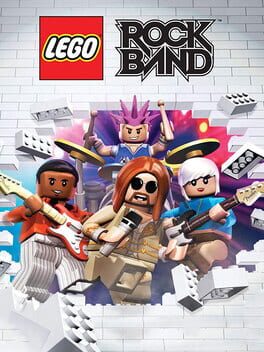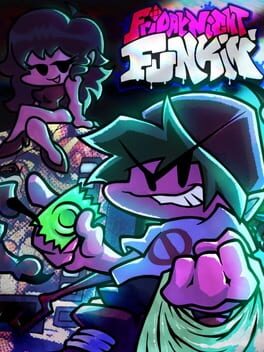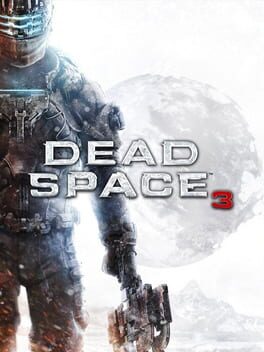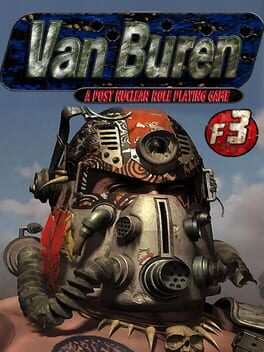Parallax_M
BACKER
261 Reviews liked by Parallax_M
It's like ordering a "duck entrée" but are served a "dick on tray" instead, and when you get up to leave you realise you can't open the door until your dinner guest Eileen is standing right next to you, but she's currently stuck on a chair on the other end of the room surrounded by three very angry chefs.
Genshin Impact
2020
If you are a minor, self aware enough to know you're not good with money, or innocently unaware what this game's real purpose is; do not play it. At best, it's a pretty-looking time sink. At worst, it's a crippling gambling addiction that's financially ruined more than one person under its weight. Gambler's fallacy is a real thing, do not fall for it. They do not care about you.
Far and away the most egregiously misguided attempt at myth-making in games history. This isn't the worst game ever. It's not the weirdest game ever. It is not the 'first American produced visual novel.' Limited Run Games seems content to simply upend truth and provenance to push a valueless narrative. The 'so bad it's good' shtick serves only to lessen the importance of early multimedia CD-ROM software, and drenching it in WordArt and clip art imparts the notion that this digital heritage was low class, low brow, low effort, and altogether primitive.
This repackaging of an overlong workplace sexual harassment/rape joke is altogether uncomfortable at best. Further problematising this, accompanying merch is resplendent with Edward J. Fasulo's bare chest despite him seemingly wanting nothing to do with the project. We've got industry veterans and games historians talking up the importance of digital detritus alongside YouTubers and LRG employees, the latter making the former less credible. We've got a novelisation by Twitter 'comedian' Mike Drucker. We've got skate decks and body pillows and more heaps of plastic garbage for video game 'collectors' to shove on a dusty shelf next to their four colour variants of Jay and Silent Bob Mall Brawl on NES, cum-encrusted Shantae statue, and countless other bits of mass-produced waste that belongs in a landfill. Utterly shameful how we engage with the past.
This repackaging of an overlong workplace sexual harassment/rape joke is altogether uncomfortable at best. Further problematising this, accompanying merch is resplendent with Edward J. Fasulo's bare chest despite him seemingly wanting nothing to do with the project. We've got industry veterans and games historians talking up the importance of digital detritus alongside YouTubers and LRG employees, the latter making the former less credible. We've got a novelisation by Twitter 'comedian' Mike Drucker. We've got skate decks and body pillows and more heaps of plastic garbage for video game 'collectors' to shove on a dusty shelf next to their four colour variants of Jay and Silent Bob Mall Brawl on NES, cum-encrusted Shantae statue, and countless other bits of mass-produced waste that belongs in a landfill. Utterly shameful how we engage with the past.
Osu!
2007
Osu!
2007
Osu!
2007
After 10 years I'm starting to think the fact that a serial abuser, four groomers/pedos, an e-beggar, an alt-right chud, and two actual sociopaths in my life all loved osu! might not be a coincidence.
Also when I watched some official osu! tournament in like 2013-2014 on Twitch, the presenter accidentally went to their desktop and the background was someloli in a bikini so there's that. I guess that's not very surprising though since every other map has scantily-clad lolis as the background.
At least I had fun for the thousands of hours I put into this oh wait no I didn't, good riddance, give me back 250GB+ of hard drive space on your way out
Also when I watched some official osu! tournament in like 2013-2014 on Twitch, the presenter accidentally went to their desktop and the background was some
At least I had fun for the thousands of hours I put into this oh wait no I didn't, good riddance, give me back 250GB+ of hard drive space on your way out
LEGO Rock Band
2009
Friday Night Funkin'
2024
Dead Space 3
2013
Messiah
2000
Van Buren
TBD
I’ve been told that a propensity for smalltalk is one of the little things that reveal someone as American, but even as an introvert who was never super good at it, I never found it as off-putting as some of my friends around the world do. Sure the words themselves are pointless, but I think it’s nice when people can spend a couple seconds establishing some tiny human connection. Of course, when you get into a situation where it drags on for minutes at a time, that’s when the unspoken social contract has been broken. The idea here was to invest a small amount of time to connect and lift the feeling of uncertainty from the air, but once that’s complete, the connection benefit is far outweighed by the social energy required to keep going. When you think about it, this principle of energy input vs. energy return can be generally applied to the effectiveness of a lot of things, and it’s part of the reason I’ve been writing shorter reviews than before. For every second I demand, I should hope to return an appropriate value, and that’s easier to do when maintaining a strong focus. With this in mind, after completing Nier Replicant, I’m sitting here wondering what the thought process was in making players repeat ~15 hours of content across 4 additional playthroughs before seeing the few short scenes which complete the narrative. It’s not that what’s here is terrible, but again, it’s like bad small talk. The story creates little connections and pulls at your heart, but the investment it demands is disproportionate to the return. It creates the same sort of annoyance that you could feel with someone who’s excessively chatty; you go from thinking it’s nice to meet someone so friendly, to wishing they would leave you alone for a while. As beautiful as the game is, and even with how most of it is executed well, that’s the unfortunate feeling that comes to mind as I look back on the experience. It’s nice, it’s fine, but I feel like it chose not to respect my time, making that lack of respect unfortunately go both ways.
When you think about it, the principle of energy input vs. energy return can be generally applied to a lot of things, and it’s part of the reason I’ve been writing shorter reviews. For every second I demand, I hope to return an appropriate value, and that’s easier to do when maintaining a strong focus. With this in mind, after completing Nier Replicant, I’m sitting here wondering what the thought process was in making players repeat ~15 hours of content and complete 5 playthroughs before seeing the few short scenes which complete the narrative. I had the exact same thought when I was finishing Automata, and although I was willing to give it some credit back then, I was surprised to see that the exact same gimmick was already used in the previous game. Just like with Automata, it’s not that what’s here is terrible, but again, it’s like bad small talk. The story is as dramatic as one would hope for, but the investment it demands is disproportionate to the return. It creates the same annoyance that you could feel with someone who’s excessively chatty: you go from thinking it’s nice to meet someone, to wishing they would leave you alone for a while. As beautiful as the game is and how well most of it has been executed, that’s the unfortunate feeling that fills my mind as I look back on the experience. It’s all fine, but I feel like it chose not to respect my time, which made the lack of respect go both ways.
When you think about it, the principle of optimizing energy input vs. energy return is a fundamental rule of nature, and it’s part of the reason I’ve been writing shorter reviews (other than general laziness, of course). Every second that you spend reading this should be worth your while, and that’s easier to do when staying focused. With this in mind, after finishing this game, I’m sitting here wondering why players had to complete 5 playthroughs before seeing the ending cutscenes. I had the same thought when finishing Automata years ago, but while I was willing to give it some credit back then, I was surprised to see that the same gimmick was used in the previous game. Just like with Automata, it’s not that what’s here is terrible, but again, it’s like bad small talk. The story is as dramatic as one would hope for, but the investment it demands is disproportionate to the return. It’s sorta like how I’ve intended to watch that new Batman movie for a while now, but the three-hour runtime creates such a mental block that I never decide to actually start watching it. It would probably be a fun enough little movie, but I know Batman will just be doing the things I expect him to do, so I don’t think I would get three hours worth of enrichment from it. As beautiful as Nier is and how well most of it has been executed, that’s the unfortunate feeling that fills my mind as I look back on the experience. It’s fun but widely uninriching, and I feel like it chose not to respect my time, which made the lack of respect go both ways.
When you think about it, the principle of optimizing energy input and return doesn’t just apply to media, it’s a rule of nature, and it’s part of the reason I’ve shortened my reviews. Every second that you spend reading them should be worth your while, and that’s an easier promise for me to keep when I stay focused. If I don’t, then even my audience might lose focus, making even the parts that they did engage with quickly fade from memory. With this in mind, after finishing this game, I’m sitting here wondering why players had to repeat so many hours of content in Nier before seeing a satisfying conclusion. I had the same thought when finishing Automata years ago, but while I was willing to give it some credit back then, I was surprised to see that the same gimmick had already been used in the previous game. It’s not that what’s here is terrible, but again, it’s like drawn-out small talk. The story is as dramatic as one would hope for, but the investment it demands is disproportionate to the return, especially when a plot that’s fairly obvious dips into indulgent melodrama. It’s not like the media you consume needs to be analyzed as such a clinical and unartistic transaction of course, wasting time has a lot of its own benefits, but a line needs to be drawn somewhere for the best use of your time. As beautiful as the game is and even with how most of it is executed well, that’s the unfortunate feeling I get when I look back on the experience. It’s fun, it’s fine, but I feel like it chose not to respect my time, which made the lack of respect go both ways.
When you think about it, the principle of optimizing energy input and return doesn’t just apply to media, it’s a fundamental rule of nature, and it’s part of the reason I’ve shortened my reviews. Every second that you spend reading them should be worth your while, and that’s an easier promise for me to keep when I stay focused. If I don’t, then even my audience might lose focus, making even the parts that they did engage with quickly fade from memory. With this in mind, after finishing this game, I’m sitting here wondering why players had to repeat so many hours of content in Nier before seeing a satisfying conclusion. I had the same thought when finishing Automata years ago, but while I was willing to give it some credit back then, I was surprised to see that the same gimmick was used in the previous game. Speaking of Automata, I was really split on whether I should do a standard review for this game like I did for Automata, or whether I should be a self-indulgent hack like I am right now. I decided on this format mostly because doing a repeat of “it’s a fine game, but its obvious plot, melodrama, and repetition bugged the hell out of me” would be a bit pointless. It’s not that writing another review like that would be terrible, but again, it’s like drawn-out small talk. The investment it would demand is disproportionate to the return. It’s not like the media you consume needs to be analyzed as such a clinical transaction of course (wasting time has its own benefits) but a line needs to be drawn for the best use of your time. As well as most of it may-or-may-not have been executed, that’s the unfortunate feeling that probably fills your mind as you look back on this experience. At the very least, *I* had fun, I think it’s fine, and maybe that’s how Nier’s creators felt, so in the end it goes both ways.
When you think about it, the principle of energy input vs. energy return can be generally applied to a lot of things, and it’s part of the reason I’ve been writing shorter reviews. For every second I demand, I hope to return an appropriate value, and that’s easier to do when maintaining a strong focus. With this in mind, after completing Nier Replicant, I’m sitting here wondering what the thought process was in making players repeat ~15 hours of content and complete 5 playthroughs before seeing the few short scenes which complete the narrative. I had the exact same thought when I was finishing Automata, and although I was willing to give it some credit back then, I was surprised to see that the exact same gimmick was already used in the previous game. Just like with Automata, it’s not that what’s here is terrible, but again, it’s like bad small talk. The story is as dramatic as one would hope for, but the investment it demands is disproportionate to the return. It creates the same annoyance that you could feel with someone who’s excessively chatty: you go from thinking it’s nice to meet someone, to wishing they would leave you alone for a while. As beautiful as the game is and how well most of it has been executed, that’s the unfortunate feeling that fills my mind as I look back on the experience. It’s all fine, but I feel like it chose not to respect my time, which made the lack of respect go both ways.
When you think about it, the principle of optimizing energy input vs. energy return is a fundamental rule of nature, and it’s part of the reason I’ve been writing shorter reviews (other than general laziness, of course). Every second that you spend reading this should be worth your while, and that’s easier to do when staying focused. With this in mind, after finishing this game, I’m sitting here wondering why players had to complete 5 playthroughs before seeing the ending cutscenes. I had the same thought when finishing Automata years ago, but while I was willing to give it some credit back then, I was surprised to see that the same gimmick was used in the previous game. Just like with Automata, it’s not that what’s here is terrible, but again, it’s like bad small talk. The story is as dramatic as one would hope for, but the investment it demands is disproportionate to the return. It’s sorta like how I’ve intended to watch that new Batman movie for a while now, but the three-hour runtime creates such a mental block that I never decide to actually start watching it. It would probably be a fun enough little movie, but I know Batman will just be doing the things I expect him to do, so I don’t think I would get three hours worth of enrichment from it. As beautiful as Nier is and how well most of it has been executed, that’s the unfortunate feeling that fills my mind as I look back on the experience. It’s fun but widely uninriching, and I feel like it chose not to respect my time, which made the lack of respect go both ways.
When you think about it, the principle of optimizing energy input and return doesn’t just apply to media, it’s a rule of nature, and it’s part of the reason I’ve shortened my reviews. Every second that you spend reading them should be worth your while, and that’s an easier promise for me to keep when I stay focused. If I don’t, then even my audience might lose focus, making even the parts that they did engage with quickly fade from memory. With this in mind, after finishing this game, I’m sitting here wondering why players had to repeat so many hours of content in Nier before seeing a satisfying conclusion. I had the same thought when finishing Automata years ago, but while I was willing to give it some credit back then, I was surprised to see that the same gimmick had already been used in the previous game. It’s not that what’s here is terrible, but again, it’s like drawn-out small talk. The story is as dramatic as one would hope for, but the investment it demands is disproportionate to the return, especially when a plot that’s fairly obvious dips into indulgent melodrama. It’s not like the media you consume needs to be analyzed as such a clinical and unartistic transaction of course, wasting time has a lot of its own benefits, but a line needs to be drawn somewhere for the best use of your time. As beautiful as the game is and even with how most of it is executed well, that’s the unfortunate feeling I get when I look back on the experience. It’s fun, it’s fine, but I feel like it chose not to respect my time, which made the lack of respect go both ways.
When you think about it, the principle of optimizing energy input and return doesn’t just apply to media, it’s a fundamental rule of nature, and it’s part of the reason I’ve shortened my reviews. Every second that you spend reading them should be worth your while, and that’s an easier promise for me to keep when I stay focused. If I don’t, then even my audience might lose focus, making even the parts that they did engage with quickly fade from memory. With this in mind, after finishing this game, I’m sitting here wondering why players had to repeat so many hours of content in Nier before seeing a satisfying conclusion. I had the same thought when finishing Automata years ago, but while I was willing to give it some credit back then, I was surprised to see that the same gimmick was used in the previous game. Speaking of Automata, I was really split on whether I should do a standard review for this game like I did for Automata, or whether I should be a self-indulgent hack like I am right now. I decided on this format mostly because doing a repeat of “it’s a fine game, but its obvious plot, melodrama, and repetition bugged the hell out of me” would be a bit pointless. It’s not that writing another review like that would be terrible, but again, it’s like drawn-out small talk. The investment it would demand is disproportionate to the return. It’s not like the media you consume needs to be analyzed as such a clinical transaction of course (wasting time has its own benefits) but a line needs to be drawn for the best use of your time. As well as most of it may-or-may-not have been executed, that’s the unfortunate feeling that probably fills your mind as you look back on this experience. At the very least, *I* had fun, I think it’s fine, and maybe that’s how Nier’s creators felt, so in the end it goes both ways.

